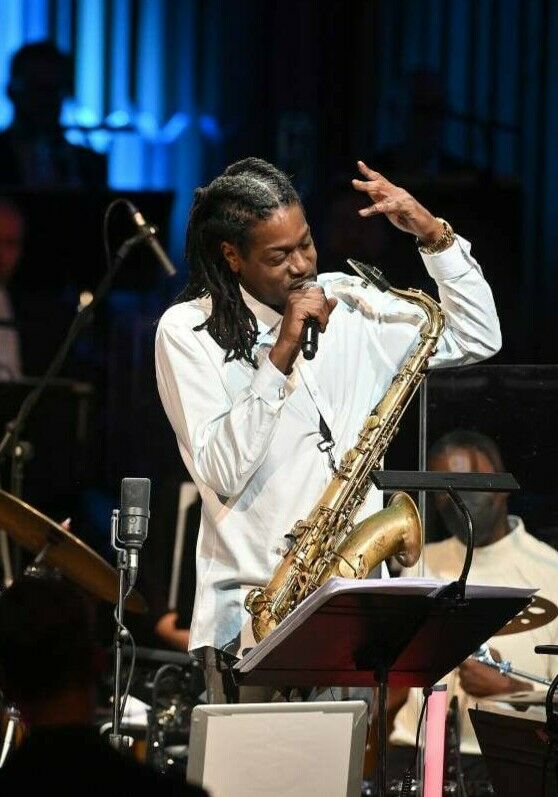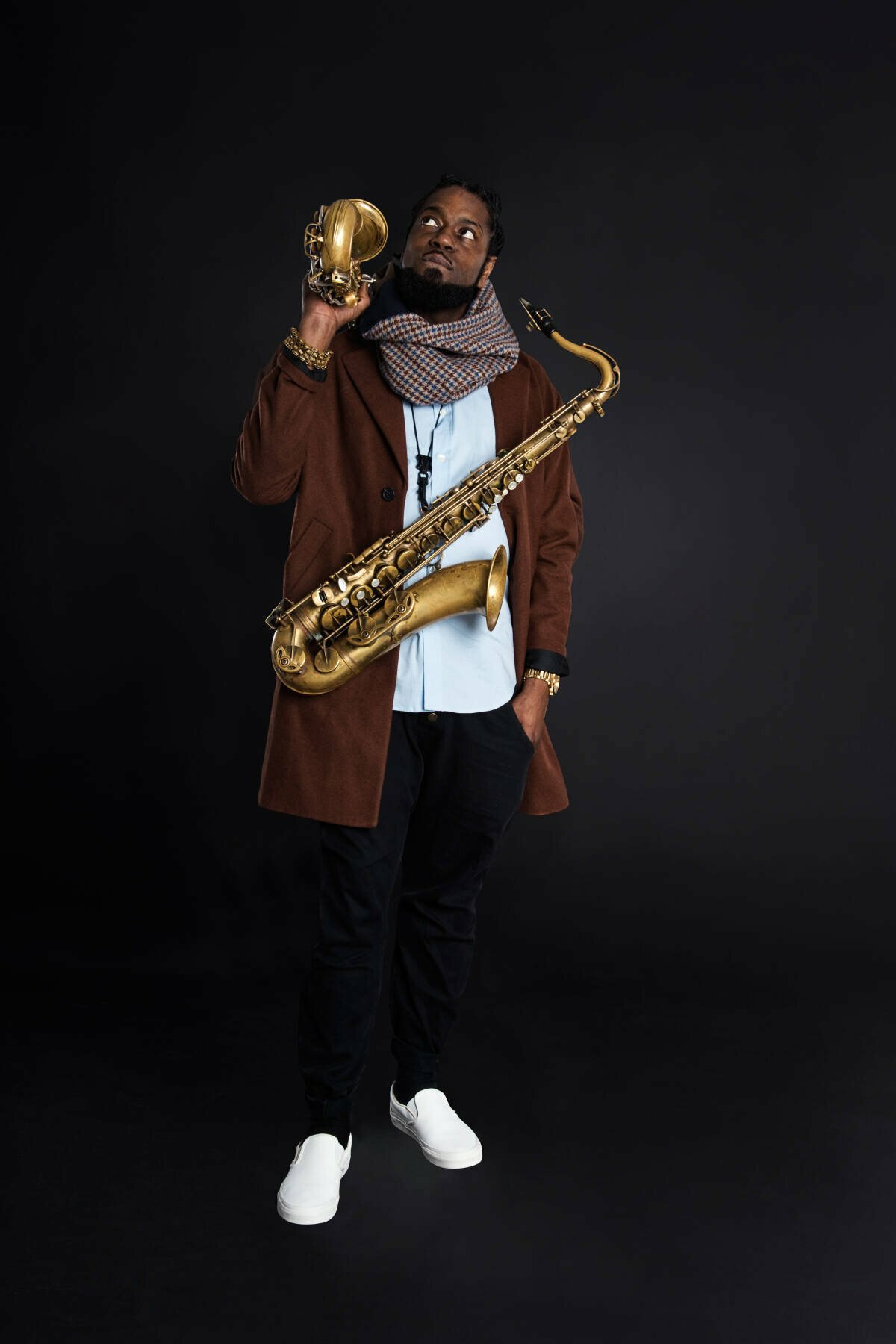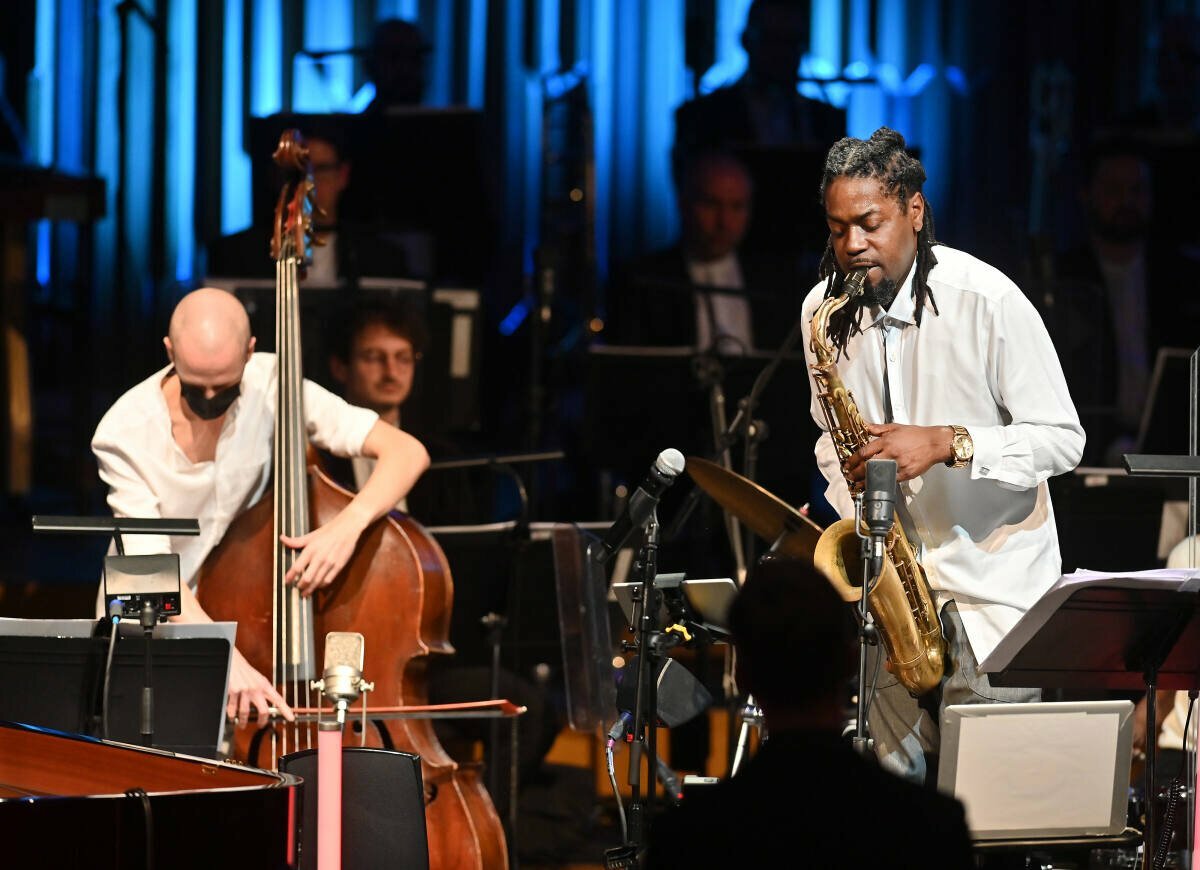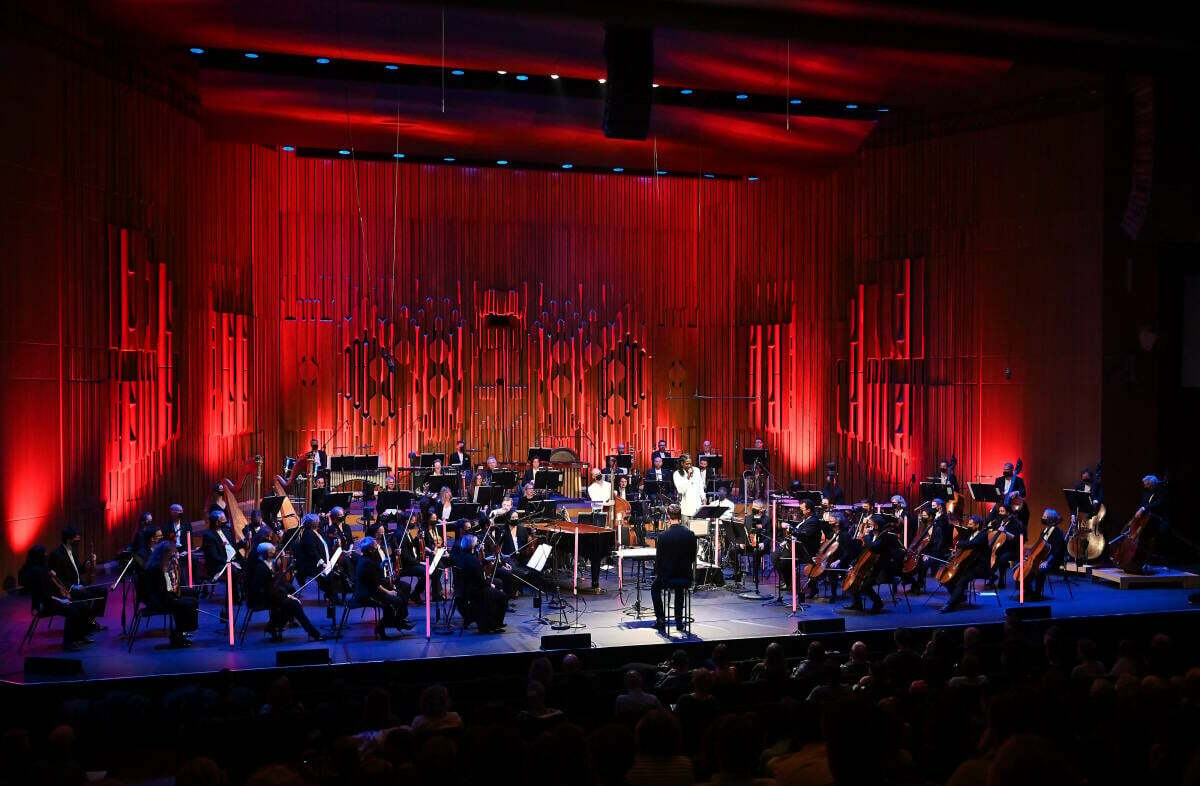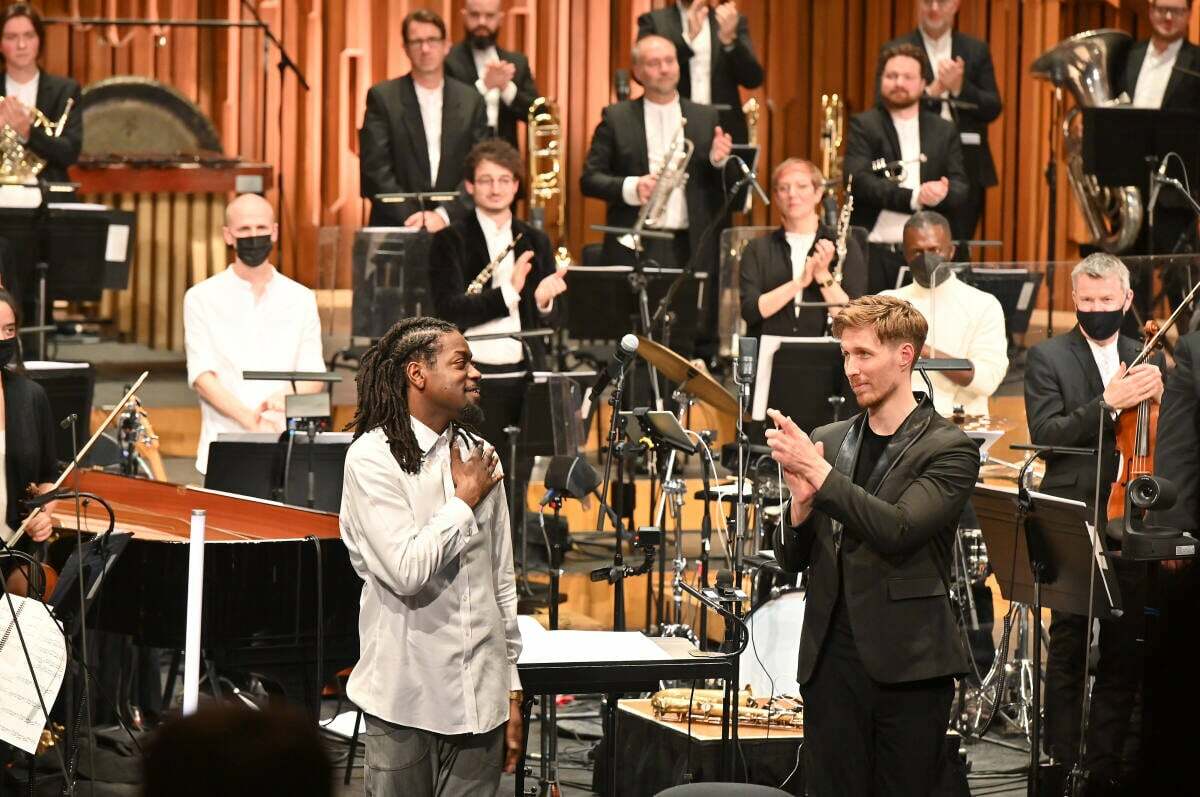There are musicians who are hard to define, and then there’s Soweto Kinch. Composer, saxophonist, emcee, hip-hop artist, and an Oxford University graduate to boot. Kinch has surely now created his masterpiece in White JuJu, his latest album which is a live recording taken from its premiere at the London Jazz Festival at the Barbican Hall. This orchestral jazz and hip-hop opus tackles a lot of ground, inspired by his experiences during the global Black Lives Matter protests, and his observations of British culture and society. Kinch chats to Headliner about how the music and thematic material all came together in this vast body of work…
As you might expect from one of very few Modern History degree-holding graduates from Oxford University with a foot in both the worlds of jazz and hip-hop, Kinch’s music has always been utterly unique in both his approach and its sound.
Born in London, his family moved to Birmingham when he reached primary school age, birthing a close relationship between the young musician and ‘Britain’s second city’, where he still hosts events, including the Flyover Show beneath a major Birmingham motorway.
Upon leaving arguably the world’s top university, Kinch’s love for jazz took a firm hold on his life (meeting trumpeter Wynton Marsalis as a youth left a huge mark on him earlier), his discography kicked off with Conversations With the Unseen in 2003, earning him a Mercury Prize nomination.
The nominations wouldn’t end there; he’s the winner of two MOBO awards, the second of which saw him up against his great inspiration Wynton Marsalis. As a jazz musician, he has many admirers, including Amy Winehouse who once stated she would love to work with him.
